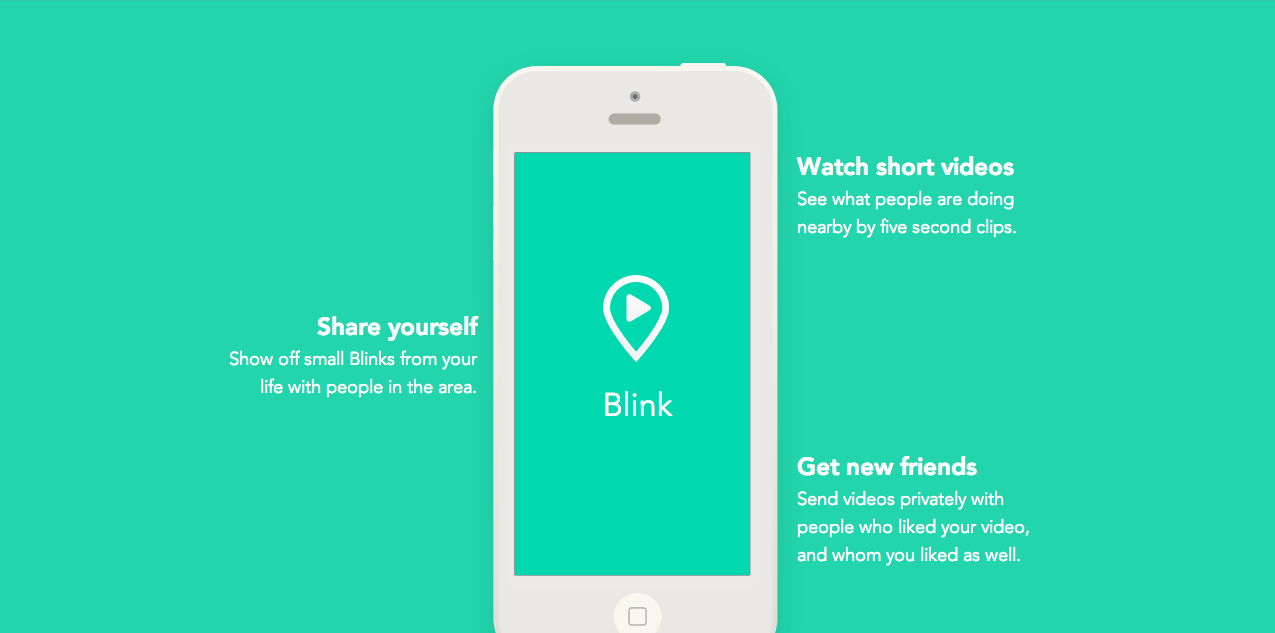Startup eco-systems – Tel Aviv – bit by bit
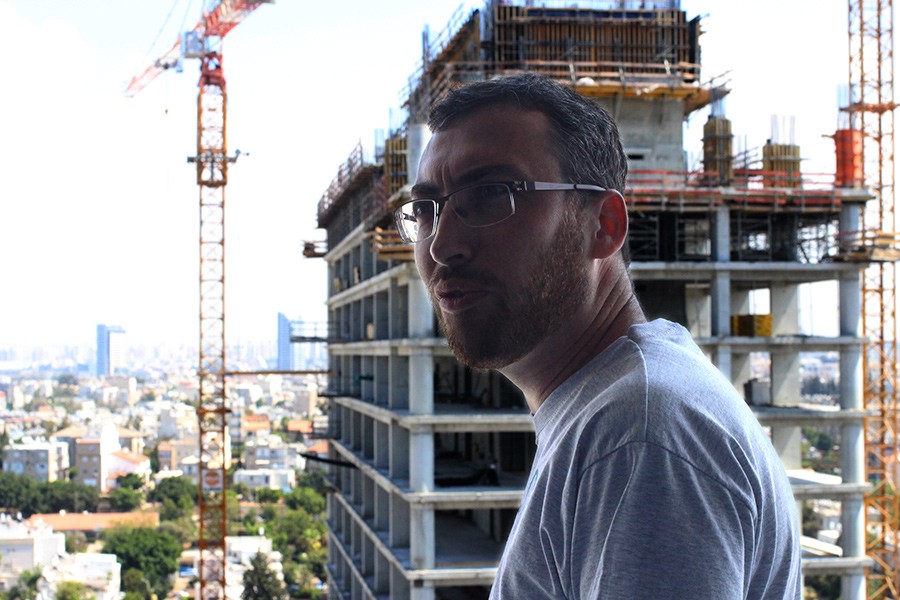
Chutzpah – the word that defines Tel Aviv as the non-stop startup city. The city is number two on the list of the best ecosystems in the world according to research conducted by the Startup Genome. The word is pronounced “Hjoodspa” and is about being daring; it is in the blood and veins of the people from Tel Aviv and the rest of Israel. A good example of this is Dafna Ariefly, a female entrepreneur who believes that she is going to change the world the same way Waze, Wix, ICQ, Yo and several other startups have done.
Down memory lane
Back in 1990, a popular chat application for PCs called ICQ connected friends and families. ICQ was an Israeli startup, and the co-founding investor was Yossi Vardi. ICQ was sold two years later to AOL for over $400 million. This acquisition and Yossi Vardi formed the keystones for the nation’s widely successful environment as a startup ecosystem. Mr. Vardi is known as the godfather of Israel’s high tech industry, and Nordic Startup Bits interviewed him at DLD.
”The success of the Israeli model is the ability to merge two different DNAs. The Israeli are very quick and very fast to enter the market with no fear and a lot of creativity. Associated with the likes of IBM or Microsoft, that can help them with sales and marketing,” said Yossi Vardi when Nordic Startup Bits interviewed him in the press tent at DLD in September.
”Israel is a very small country, with no home market. English is spoken by all graduates from high school and then there is the Chutzpah. These ingredients are the main success for the Israeli startup ecosystem and Israeli startups in general.”
The role of the multinational corporation
A panel at the DLD conference with general managers from General Motors, Google and the like gave their opinions on the matter, and reflected on how Multinational corporations (MNC) are contributing to the Israeli ecosystem.
“Israel really has great engineering talent, which is partly due to strong academic institutions and the entrepreneurial and creative spirit that flows here,” Meir Brand, Managing Director, Google Israel, said at the panel discussion.
But the role of providing support and not stealing talent is important. As Meir Brand puts it, there is a massive engineering talent coming from the academic institutions and the military, the latter primarily from Unit 8200. And support rather than competition has been an important factor for the success of the ecosystem.

The military – a school of focus
The military plays an important role in Israel and the startup ecosystem. Everyone has to spend between two and three years in the military, and if a young man or girl has a real engineering talent, the door is open to one of the best academies for engineers in the world. Unit 8200 is acknowledged around the world; as Business Insider puts in one of their articles:
“This correlation between serving in the intelligence Unit 8200 and starting successful high-tech companies is not coincidental: Many of the technologies in use around the world and developed in Israel were originally military technologies and were developed and improved by Unit veterans.”
The invincible Israelis
One of the founders we met on our trip around the Israeli ecosystem is the co-founder of the famous app “Yo.” Moshe Hogeg has a military background just like all other young men in Israel, but not a background like most men at his age if you compare him to Europeans or Americans.
“The army taught me to focus, and I matured very fast with this responsible. I felt I was invincible.”
“I was 24 years old, was a captain, had the lives of 124 men on my shoulders and a budget of over $10 million. I learned to take on a mission and succeed.”
When Moshe left the army, he started a streaming service for football matches, but he did not have the success that he wanted. But, as invincible as he was, he started a new project a couple of years later when he co-founded Mobli. He made it his mission to create an improved search engine for images, and his vision to change the world. And he is obtaining both.
With the other project, “Yo,” that had massive success and received a lot of publicity, he is one of the first people who built an app that used what well-known VC Marc Andreesen calls “one-bit communication.” – http://www.businessinsider.com/marc-andreessen-defends-yo-app-2014-6
Yo is an app where you can send a “Yo” to your friends, and that’s it. Not clearly innovative, but in many use cases, a Yo is enough.
When we asked Moshe what he thinks is the most important part of the Israeli startup ecosystem, he quickly replied:
“The army is a huge factor for the startup city and of cause the Chutzpah.”
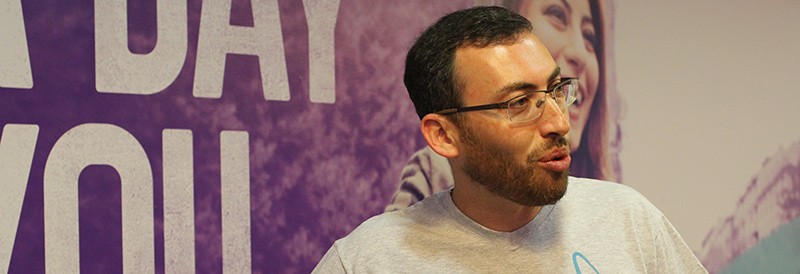
Pointing at the next step of success
One of the new super stars is Viber, and it has a user count of over 400 million. It is located on the 14th floor in a big office building. When we met Igor Magazinik, we were asked to go to the balcony where he pointed to the North, towards machines and men in yellow security helmets who are helping and growing the physcial part of the ecosystem.
“When we grow out of 14th and 15th floor, this is our new target. This can actually happen. We have seen a significant growth in our user numbers, and our new release with video capabilities looks very promising.”
Viber was acquired by Rakute back in February for almost $1 billion and is another example of the startup nation and their success. If everything goes as planned for the Israeli startup founder, Igor is already paying it forward (or will do so in the near future). And pay forward mentality is one of the reasons for the current flourishing ecosystem and the growing number of Israeli startups that act as active investors and mentors.
Mentality is changing
Eden Shochat is the man who sold Face.com to Facebook, and he is also aware of the trend of successful entrepreneurs investing money back into the Israeli startup ecosystem.
“You didn’t see a lot of that before. The usual Jewish boy, after an exit, listened to his mother and kept the money in the bank. What is happening now is that those people are writing checks,” Eden Snochat told Robin Wauters, Tech.eu at DLD.
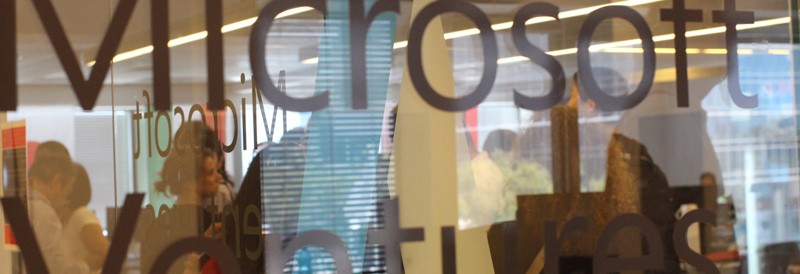
Accelerating with Microsoft and Coca-Cola
The strong link between multinational corporations and startups are unique in Israel, and the number of MNCs that have research facilities or offices in Israel is growing; the number is almost 300 now. But some MNCs want to take it even further – Microsoft Ventures and their accelerator program and Coca-Cola and their theBridge program are good examples of this.
There is a coke machine in the corner and the iconic swush and red lines on the glass door that separates the different startups offices. The iconic logo and logotype is on the wall, and you don’t need any further explanation to the place of arrival: The Coca-Cola accelerator, theBrigde. Alan Boehme tells Nordic Startup Bits that Israel was the logical point of departure of the company’s new program, but while it was clear to them that another incubator or accelerator was not needed, they thought that Israeli startups needed a “bridge” to global enterprises.
“Things change so quickly that you can’t do it internally; you have to reach out to the best. It used to be the enterprises that drive technology, but that has changed. Now the consumer technology changes so quickly that every corporation needs to have a connection to the young entrepreneurs who are driving the changes”, says Alan Boehme, one of the founders of theBridge.
Microsoft helps changing the idea
The Coke machine will never empty and the startups’ possibilities will bubble like a newly opened Coca-Cola. The startups have a unique opportunity to dig into Coca-Cola and use all their experience on sales, marketing and branding. Microsoft Venture has a different approach, and the visit to their accelerator shows that Microsoft is, just like Yossi Vardi told us earlier that week, the company for startups in Israel.
Microsoft believes in Israel and has, like several other Multinational Corporations (MNC’s), opened an office here. The story why they did so is quite unique.
”We had two Senior guys in Redmond, and they wanted to relocate to Israel, so we opened an office in Haifa. A couple of years later, Moshe Dunie, a VP in Microsoft, wanted to do the same, so we told him he could relocate to Haifa, but he didn’t want to commute, so instead we opened an office here in Tel Aviv,” says Hanan Razy, director of Microsoft Accelerator in Tel Aviv.
Many of the MNCs are opening their offices because they acquire a company in Israel; this happened after Apple acquired Anobit back in 2012, and after Facebook acquired Face.com.
“During the process of the accelerator with Microsoft, it is normal that the original idea changes. After Microsoft introduced the startup to the right customers, the right marketers and mentors, they received feedback that helped them find the right product that fits and is a pain in the market,” said Zack Weismann from Microsoft Venture to Nordic Startup Bits.
Over the next four months, startups from Japan, India, Slovenia, Spain, and Israel will be divided into two different pillars. One is healthcare startups and the other one is cyber security. The 11 startups were chosen from almost 300 applications from around the world. The startups are now invited to meet people and companies that seem almost unreachable for them. The network, the mentors and the knowledge from Microsoft Ventures will bring them forward very fast.
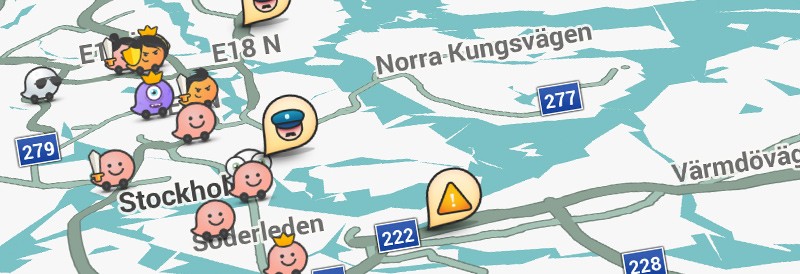
Waze the winner in the fast lane
One startup that has moved fast is Waze. Their crowd sourced GPS service went from having a few users to many millions over a short time period. They won the LeWeb startup competition back in 2010 for best technology, and later they won an award for best mobile app at the Mobile World Congress in Barcelona as well. The number of user continued to increase. But before they got all that attention, the Chief Scientist and his office invested $1 million in the startup. After a couple of years, their user number had grown to 50 million, and Apple and Google were competing to acquire Waze. Google was the lucky one and paid almost $1 billion, but before the deal went through, Google had to visit the Chief Scientist’s office and leave a very large check.
45 years ago, the office for the Chief Scientist was created. Israel decided they wanted to create the knowledge industry and the knowledge economy. Ever since then, the office has been an important player for pushing the whole ecosystem forward. Its mission has been to assist the advancement of Israel’s knowledge-based science and technology industries in order to encourage innovation and entrepreneurship while stimulating economic growth. The Chief Scientist is a former entrepreneur and partner in a Venture Capital firm, and his day job is about taking risks and thinking unconventionally.
”We have nothing else to offer; we are a very small country with a very small market. We didn’t have any national resources before the new discovery of our offshore gas. Israel is the only piece of land in this region with no oil. So Israel had to come up with something else, and that was innovation,” said the Chief Scientist Avi Hasson when he outlined the story about Israel being among the countries in world that invest the most public money in R&D.
“Israel is a very proactive country that wants to build the ecosystem stronger and stronger. A good example of that is a new legislation that helps seed companies to get investments from angels. The new legislation is a tax benefit to angel investors who invest in seed companies. The angel investor can recognize the whole investment against any income in that year,” tells Avi Hasson to Nordic Startup Bits.
High risk investment pays off
The Chief Scientist’s role is non-political, regardless of the fact that ministers and governments are elected. ”It creates a high level of stability,” says the Chief Scientist. The last 25 years, no matter which government that has been in power in Israel, there has always been support to this R&D and innovation strategy and to making profitable business by investing in high risk projects. And here Waze is a really good example.
During the years, Waze has obtained $1 million dollars in funding from the Chief Scientist office.. And when Google wanted to have the Waze IP available to all business units,, they came to the Chief Scientist for approval. In the case of Waze, Google paid back three times the amount that was invested, and the Chief Scientist got $3 million. But the government got $320 million in taxes for transferring the IP.

Until the mission is a success
Talking to different entrepreneurs in Israel, we can only be inspired by their passion and hunger to innovate. Dafna Ariefly exemplifies this and shows that Israel is truly a ‘startup nation’. Dafna was tired of wasting time and effort to find her lost glasses and made a product called Lost.
“The product is a small Bluetooth tracking device that can be clipped to your glasses with ease. You can attach Look to any arm of the glasses from inside or outside,” said Dafna when we talked to her.
Chutzpah is living in her blood and veins, and she has a belief and a sparkle in her eye that says: “Look is going to change the world.” She could not sit idle before she had found a solution to her own problem, and this is what it is all about in Israel – finding a solution to a problem and carrying on until the mission is solved, even if you fail the first time.



